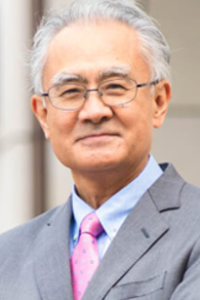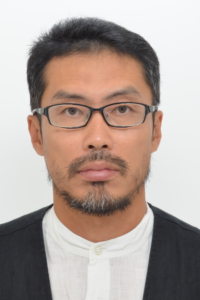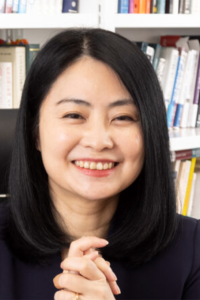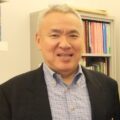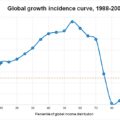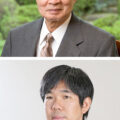Can the Global South Take Responsibility for the International Order? Redefining “Growth” and “Stability” in the Indo-Pacific
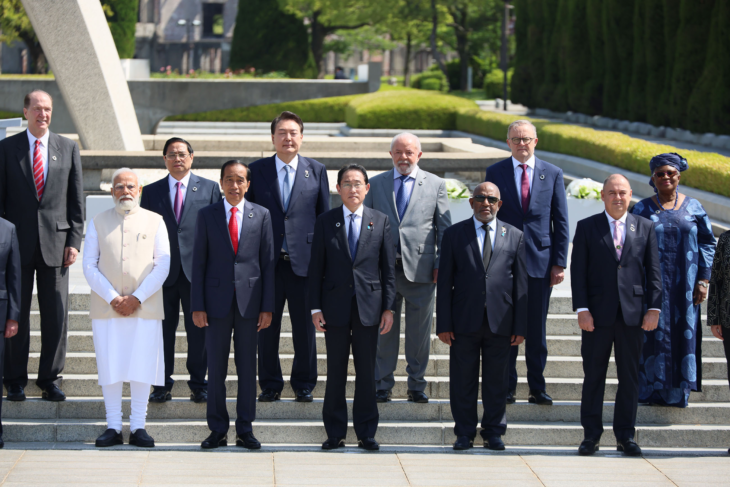
How can the international order be revised and what is a fair distribution of power? Japan will have various cooperation frameworks with countries that have a certain level of national power and can contribute to maintaining and building the order. Prof. Ishii Masafumi argues that it would be a good idea to institutionalize outreach meetings within the G7, for example, pointing out that “India, Indonesia, Turkey, Saudi Arabia, South Africa, Brazil, South Korea, and Australia, as well as the chair countries of ASEAN and the AU, would be invited each year to discuss global issues and provide direction on an ongoing basis.” The photo shows a visit to Hiroshima Peace Memorial Park during the Outreach Meeting at the G7 Hiroshima Summit held in May 2023. Photo: Cabinet Public Affairs Office
With the inauguration of the second Donald Trump administration, there are concerns about “vacuums,” especially those in security frameworks and economic order, which will increase the risks. How will the regional powers of the Indo-Pacific, that is, the Global South, try to change the international order with their own hands? And how can Japan cooperate with them?
Ishii Masafumi (Special Adjunct Professor, Gakushuin University), Ito Toru (Professor, National Defense Academy), Oba Mie (Professor, Kanagawa University)
—— The second Trump administration has shown great interest in China, Ukraine, the situation in Gaza, and other areas. But it hasn’t announced much about the Indo-Pacific.
Ishii Masafumi: With the exception of India, the Trump administration has not paid much attention to the Indo-Pacific region The decline in America’s desire to engage abroad began with President Obama’s statement in 2013 that “America is not the world’s policeman,” a sentiment shared across party lines now. Opinion polls show that younger generations tend to agree more than the older generations, so it can be said that this is an irreversible trend.
Oba Mie: In a word, America has become a “normal” great power. A hegemonic nation needs the ability and will to uphold the international order. Although China is catching up with America, America’s “ability” should not be underestimated. However, as long as it lacks this “will,” America cannot be a hegemonic nation and will become a factor causing the international order to drift.
On the other hand, America is undoubtedly a “great power.” By using its military and/or economic capability, great powers are eager to use their own power to realize their national interests. To this end, they do not care much about deviating from international norms and rules. For example, not only additional tariffs on China, but also tariffs on imports from Mexico and Canada, or even claiming ownership of Greenland… In extreme cases, their principles of action are not very different from those of China and Russia. Of course, the difference between the domestic systems, democracy and authoritarianism, is important. And Trump’s “Greenland ownership” statement, which is probably part of the deal, is on a completely different level than Russia’s invasion of Ukraine. However, the image of a leader with an intimidating appearance, a strong domestic political base, and a disregard for (or disrespect of) international norms in order to advance national interests (or the interests of his supporters) may become more prevalent around the world in the future.
Facing America as a “normal” superpower
Ito Toru: The world is wary of Trump’s reappearance, but India’s Prime Minister Narendra Modi is welcoming him. To get along with a president as unique as Trump, compatibility between leaders is also important. For Prime Minister Modi, President Trump is a friend, and he was close to Prime Minister Abe Shinzo during his first term, so I think he is confident in diplomacy with the United States. His term will overlap with President Trump’s for the next four years. It is true that cooperation with the Biden administration has deepened in the areas of defense and important new technologies, but the rollback of human rights and democracy has been criticized. Moreover, in 2024, a former Indian intelligence official was charged with plotting to kill a Sikh separatist, and a wealthy member of an emerging conglomerate close to Prime Minister Modi was also indicted on suspicion of bribery and other charges. There is hope that the Trump administration will overlook the crime.
Ishii: Indonesian President Prabowo Subianto also seems to have a good chemistry with Trump. Prabowo spoke to him by phone during his visit to the US in November 2024. President Prabowo spoke fluent English and seemed to get along well with him.
Oba: President Prabowo visited China before his visit to the United States, and it seems that he will get along well with President Xi Jinping. They can be seen as leaders with certain similarities.
Returning to the topic of the Trump administration, the first issue of concern from a Southeast Asian perspective is the impact of Trump’s trade policy. In his statements from the presidential campaign to now, there have been references by Trump and his team to across-the-board additional tariffs and tough responses to countries with trade surpluses with the United States. This tendency was also seen in the first Trump administration. However, at that time, the US ended up focusing its attention on China, which resulted in Southeast Asia, especially Vietnam and Indonesia, benefiting from increased exports to the US instead of China.
Ishii: However, Southeast Asia will not be able to escape from the US attention in this regard this time.
Oba: Many fear that if access to the US market becomes more difficult, it will affect not only Vietnam, which benefited from the first term of the Trump administration, but also Thailand and Malaysia, which are pursuing further economic development to overcome the “middle-income trap.” Southeast Asia’s growth has depended on a free and open economic order, so any distortion of that order is a major risk for Southeast Asia.
Problems of “friend shoring” (moving production to friendly countries to strengthen the supply chain) are also likely to arise. So far, Southeast Asia has been less affected because it does not have strengths in cutting-edge technology products that would be subject to regulation. However, if the US-China conflict intensifies, it is possible that key export products for Southeast Asia will become subject to regulation.
Ishii: It is likely that the US will not only target direct tariffs on Chinese products, but that exports to the US of products made with Chinese components will also fall under the restrictions. This would have a significant impact on countries like Thailand.
Ito: India also has a huge trade surplus with the US, so it is certain that it will be attacked on the tariff issue. However, based on his experience negotiating H-1B visas (professional visas, of which about 70% are Indian) with the US during the first Modi administration, Modi believes he can make a deal with the Trump administration. India is more concerned that if the US rejects Chinese products, they will be dumped and exported to India.
The importance of the Philippines in the Taiwan issue
—— What do you think about the impact of the US-China conflict on security, especially the Taiwan issue?
Oba: Looking at the personnel of the second Trump administration, we can predict to some extent a hard-line policy towards China. One of the focal points in terms of security is the Taiwan issue. There is a need to strengthen deterrence so as not to provoke an emergency in China, but in the process, there are likely to be difficult situations regarding what to do about the South China Sea, which is a focal point, and especially how to involve the Philippines. There is, of course, the possibility that the Trump administration will increase its support for Taiwan as it takes a harder line against China. But on the other hand, it is not impossible to consider the option that the Trump administration will reduce its involvement in Taiwan in order to make a deal with China. The Taiwan issue will be an important indicator when looking at the Trump administration’s China policy and alliance policy.
Ishii: I believe that if Japan and the United States work together to establish a deterrence system (to stop a Taiwan contingency from happening) and clearly communicate this to China, there is little chance of a conflict in Taiwan in the near future. If an emergency were to occur, it would be if Taiwan unilaterally declared independence or if there was a clear indication of US non-involvement. I hope that the new Trump administration will send a reasonably clear message regarding the defense of Taiwan.
President Trump, however, has not been proactive on foreign engagement. Though he wants to see the US military remain the best in the world, I think he is extremely cautious about using its power. It is unlikely that the US will listen carefully to what the other party has to say because it is an ally, or that it will immediately engage militarily when asked to do so by an ally. In fact, the Trump administration will likely seek to reevaluate even relationships with allies on a zero-based basis in terms of whether they serve the best interests of the United States.
Applying this to Southeast Asia, the Philippines is in the most difficult position. As an ally of the United States, the Philippines’ cooperation is indispensable in a variety of situations involving the Taiwan contingency. However, it is questionable whether the Trump administration understands the importance of the Philippines’ defense… Since the Trump administration seems unwilling to intervene in skirmishes between Chinese Coast Guard (CCG) vessels and Philippine Coast Guard vessels, I think the Philippines feels a sense of “fear of abandonment.”
Ito: The lack of an American regional policy is the same in South Asia. The Trump administration deals with India because it is a great power, but has shown little interest in other countries. In the first term of the Trump administration, aid to Pakistan was stopped. It was the Trump administration that paved the way for the withdrawal from Afghanistan. As for Bangladesh, the Trump administration was on good terms with the Sheikh Hasina government. However, the current chief advisor of the caretaker government, Dr. Muhammad Yunus, is on good terms with the Clintons, and when Trump won the presidential election in 2016, Dr. Yunus called his victory a “solar eclipse … black days.” Trump will not forget this. Dr. Yunus may be perceived as a political opponent of President Trump. The Biden administration has been active in reaching out to small countries like Nepal and Bhutan, but that will decrease under the Trump administration.
Ishii: Even if US involvement declines, neither China nor Russia are able or willing to provide an alternative international order. But if there is some kind of vacuum in the region, conflict is more likely to happen. Who will prevent conflict, and how will the region be stabilized? With respect to the Philippines, it is necessary for Japan and Australia to work together to improve defense and maritime security capabilities. Indonesia is also an important partner to work with on sea lane issues.
—— Can India cooperate on the Taiwan issue?
Ishii: In the event China decided to invade Taiwan, if the Indian army were then to gather troops near the Chinese border, it would put strong pressure on China. It cannot be done openly, but if Japan and the United States support the strengthening of the Indian army with this possibility in mind, it will be a message to China.
Ito: If we expect this from India, it will be necessary to prepare a supply chain that is “de-China” as a prerequisite. India’s manufacturing industry is heavily dependent on China for raw materials, parts and technology. Japan and the Quad (Japan-Australia-India-US Dialogue) will need to fully support India’s economic “de-China” efforts.
How do we see the BRICS becoming “anti-Western”?
—— The presence of the BRICS is growing, as if in inverse proportion to the decline of US foreign engagement.
Oba: It is well known that Southeast Asian countries avoid the choice of “the United States or China” and value relations with both. What is important is the economic development and sustainability of the region, and to achieve this, it is important to deal with both pragmatically. The United States remains the largest investor in Southeast Asia, and its importance goes without saying. On the other hand, investment and trade with China is also growing rapidly and gaining momentum. As a result of the pragmatic response, ASEAN’s relationship with China has become stronger in relative terms. The same applies to the response to BRICS. Indonesia officially joined BRICS in early 2025, and Thailand and Malaysia have also submitted applications for membership. These moves are not an attempt to side with the Chinese and Russian camps, but rather a diversification of options for economic growth. However, their actions have led to an increased presence of the BRICS in the world. It remains to be seen whether sufficient unity can be achieved within BRICS, but I believe that its expansion goes beyond the intentions of Indonesia and other countries, and is a phenomenon symbolizing the deepening division of the world.
—— India is a founding member of BRICS. How does India see its recent expansion?
Ito: India initially viewed BRICS as a group of powerful “non-Western” countries and joined the group with the intention of broadening its diplomatic horizons. It was positioned as a rallying point for emerging powers dissatisfied with the existing international economic order, which was dominated by Western industrialized countries. However, the border dispute with China in 2020 made it extremely difficult for India to cooperate diplomatically with China. Moreover, as the Russia-Ukraine war dragged on, Russia and China began to seek to expand BRICS, clearly aiming to make it a rallying point for “anti-Western” forces. The same goes for the Shanghai Cooperation Organization (SCO), which India joined because it placed importance on strengthening its relationship with Central Asia.
India is wary of this “anti-Westernization” of the BRICS and SCO. Prime Minister Modi did not attend the SCO summit in Kazakhstan in 2024. Prime Minister Modi does not want BRICS to become “anti-Western” and “China-led” and has always been reluctant to expand. Therefore, the importance of BRICS in Indian diplomacy is declining. On the other hand, India is aware of its role as a “weight” to prevent BRICS from swinging further against the West by continuing to participate.
Ishii: I think the reason why the BRICS expansion is big news is that it is linked to structural changes in international politics. When international conflicts arise, the United States has been at the center of efforts to resolve them. The power of the United States is enormous, so if you are looked at by the United States, you have no choice but to accept its demands, even if you are a little unhappy. In other words, a kind of “rule by fear” has been played. But now that the United States has withdrawn [from international politics], who will calm the conflict and how? It would be good if Europe or Japan could play that role, but neither has the power or experience of the United States. Negotiating a cease-fire would force all sides to make concessions, and the organizers would be resented by all sides. Japan and Europe are vulnerable to such political pressure. In this case, they should rely on the pressure of the majority, that is, “everyone is saying stop it,” in other words, “rule by the majority.” The participation of the majority [in international politics] is a welcome thing in itself. But it has led to a competition between the West and China and Russia for the support of the countries of the Global South, which constitute the majority of “international public opinion.”
—— What about the difference in influence on the majority side?
Ishii: In Southeast Asia, it’s Indonesia. That’s why the impact of its joining the BRICS, which has become “anti-Western,” is great. If Indonesia shifts its axis even a little, the balance in Southeast Asia will change. I am worried that it might take steps to split the Association of Southeast Asian Nations (ASEAN), even though it is the leader.
Oba: ASEAN has such a diverse membership that it has to constantly chant “ASEAN unity,” but the ASEAN framework is an effective and familiar political asset for its member states, and I don’t think it will easily split apart. However, the fact that Indonesia and other countries have joined BRICS certainly indicates the declining importance of ASEAN in their diplomacy. Indonesia is also negotiating to join the Organization for Economic Cooperation and Development (OECD), which suggests that it is trying to balance its membership in BRICS.
Ishii: In the past, Indonesia may have been dissuaded if the United States had put a stop to it, but the absence of such an actor has in part lowered the hurdle for Indonesia to join BRICS.
Desired “order” varies by country
—— What is the order that the Global South desires?
Oba: What we want from an international order is, first, the prevention of “changing the status quo by force,” second, the maintenance of an open economic order, and third, the ability to respond to global problems such as climate change and infectious diseases. In reality, the international community is unequal, with various powers concentrated in the hands of major powers. Examples include the veto power of the UN Security Council and the quota system of the World Bank and the International Monetary Fund (IMF). This is allowed because privileges are inextricably linked to the responsibility for maintaining the international order. On the other hand, it is also true that the distribution of power based on the post-World War II world order no longer fits the current state of the international community. Some developing countries have developed to the point where they are called emerging countries, and their economies are on a par with, and on the verge of surpassing, those of Western countries. These countries are pushing up against the West for a redistribution of power. They are the so-called regional powers: India, Indonesia, Brazil, South Africa, and others.
Ishii: China has been calling for the reform of the quota system for the past 20 years.
Oba: On the other hand, there are also disparities between emerging economies and other developing countries, many of which do not share the same perspective as emerging economies, and in fact China and India are not able to represent their voices.
Ito: India began to show its enthusiasm for building a global majority around the time it took over the presidency of the G20 in 2023, hosting the online “Voice of Global South Summit 2023” in December of that year. It was an attempt to show the world that India is the voice of the Global South, that is, a voice that represents the voice of the majority of the world. However, the extent to which this was accepted by the countries of the South remains questionable. At the Voice of the Global South Summit 2023, Prime Minister Modi initially presented himself as a “Vishwa Guru” (world teacher), presenting a macho image of leadership. However, his top-down approach didn’t resonate at all with participating countries. At the same time, suspicions that Indian intelligence agencies were involved in assassination attempts in Canada and the United States have raised concerns in Western countries that Prime Minister Modi is trying to challenge the West. In response to such criticism, the Bharatiya Janata Party (BJP) removed “Vishwa Guru” from its manifesto ahead of the 2024 general election, replacing it with the phrase “Vishwa Bandhu” (friends of the world). India itself is in the process of exploring how it can work with the Global South. However, it is still unclear whether there is a clear philosophy behind this.
Oba: Perhaps India doesn’t have a universal ideology. Based on the current systems, they simply ask people to “listen more to what we have to say,” but nothing more is being said at the moment. Whether it is security, economics, or global issues, it seems that India has no desire to destroy the existing order and build a new system.
Ito: You are right. As External Affairs Minister Subrahmanyam Jaishankar succinctly stated at the Voice of the Global South Summit 2023, India must build partnerships with different countries to realize its national interests. And to do so, it must sincerely listen to the voices of other countries. The world is becoming multipolar, and India has a vision of an order in which it will occupy a corner of it, but there is no idea of coming up with a universal concept like China’s “Community of Shared Future for Mankind” to counter the West. India wants to be the leader of such a movement, to present the voice of the Global South to Western society, and to revise existing systems to suit its own convenience — that is India’s stance.
Oba: From another perspective, the existing international order may be strong in principle. It is important to modify the branches of the international order while adapting it to the current state of the international community.
Ishii: We also hear calls for a fair distribution of power in the domestic politics of each country. The question is how to revise the international order in concrete terms, and what constitutes a fair distribution of power. It is essential for Japan to have various cooperation frameworks with countries that have a certain level of national power and can contribute to maintaining and building order. For example, in the case of the G7, although the proportion of economic size has declined, it functions well in that it can show the direction of the world and make creative proposals to solve pending problems. If the membership is simply expanded, it will become a place where people just talk, like the G20. So I think it would be good to keep the core seven countries and institutionalize the outreach partners. Already, outreach meetings are held each year to which about 10 countries are invited, but some of the members would be permanently invited. For example, India, Indonesia, Turkey, Saudi Arabia, South Africa, Brazil, South Korea, and Australia, as well as the chair countries of ASEAN and the AU, would be invited each year to discuss global issues and provide direction on an ongoing basis.
—— This is an interesting suggestion.
Ishii: One of the countries Japan would like to emphasize is Indonesia. It is the leader of ASEAN and will become one of the global poles in the future, but as I mentioned earlier, it has announced that it will officially join BRICS in early 2025. To balance this, Japan would like to increase the number of levels of cooperation. Indonesia has already begun to exert its influence beyond ASEAN, for example by holding regular foreign minister-level meetings with India and Australia. If Japan wants to be actively involved in building order, it would be a good idea to join the framework of these three countries. It’s like an Asian version of the Quad, with the United States and Indonesia switching places in the Quad. I think one answer to the need for a new order would be to develop a multi-layered framework in which emerging economies can play a role in building that order.
Ito: Another important point is whether it can deal effectively with pressing issues. From India’s perspective, China is obviously a concern. Therefore, India is acutely aware of the problems of an international order that tolerates border disputes with China, changes in the status quo in the South China Sea, the imposition of excessive debt, and economic coercion, and it is advocating these issues to the outside world. It calls on the international community to take effective action using the logic and mechanisms of the existing international order. The Quad is an example of this.
Oba: Great powers like the United States, China, and Russia can survive in a world of survival of the fittest, where norms and rules do not work. But such a world is a dystopia for middle powers and small countries. In a sense, it may be a natural progression that middle powers and small countries, which (should) benefit from international norms and institutions, have begun to focus on building their own networks. As one of the countries that will benefit, Japan should actively find an agenda and expand the network of various collaborations. It is time to redefine the substance of “growth” and “stability” in a way that suits the times, and to refresh the means to achieve them.
Japan’s position is being questioned
Ishii: It’s also important to come up with a system that allows countries in the Global South to benefit and develop economically. In this respect, opening up market access is extremely important. This is essentially America’s greatest weapon, but the United States has sealed it away itself. Japan should work to expand the free trade network and raise its level. Taiwan, China if conditions are right, and the EU, the Common Market of the South (Mercosur), and India will join the Comprehensive and Progressive Agreement for Trans-Pacific Partnership (CPTPP) — these are issues that should be considered in the medium to long term. On this basis, it would be possible to build a dispute settlement framework to replace the dysfunctional World Trade Organization (WTO).
Another point of contention is export controls on sensitive cutting-edge technologies. The question is how effective we can make the “small yard, high fence” policy. Again, because the existing Wassenaar Arrangement (WA, the Wassenaar Arrangement on Export Controls for Conventional Arms and Dual-Use Goods and Technologies) is not functioning due to Russia’s veto, it is necessary to expand and layer a regional framework. In this regard, it would be a good idea to cooperate with the North Atlantic Treaty Organization (NATO), which has been paying increasing attention to this issue in recent years.
Oba: Western countries should listen to the voices of the Global South and at the same time be a little more aware of how they are perceived by the Global South. In this regard, we should think carefully about how to respond to the Gaza conflict. Regarding Russia’s invasion of Ukraine, most countries recognize that Russia is to blame. But how does the South view the fact that many Western countries have consistently expressed support for Israel in the Gaza crisis, regardless of the historical background?
Ishii: According to public opinion polls in Malaysia and Indonesia, which Prime Minister Ishiba Shigeru visited earlier this year, the Gaza issue is of greater concern than the South China Sea issue. There is much criticism of the West’s double standards.
Oba: If we want to deepen our relationship with the Global South, we should be more aware of this difference in perception. With regard to the Gaza conflict, Japan has taken a different position from the other six G7 countries, but by taking its own stance on other issues, Japan can show that it has its own values rather than following something. This will promote real dialogue with the Global South, and it will also give Japan bargaining power with the United States.
Moderated by Nakamura Kiichiro, editor-in-chief, Gaiko
Translated from “Zadankai: Gurobal Sausu wa Kokusai-chitsujo wo Ninaeruka — Indo-Taiheiyo no ‘Seicho’ to ‘Antei’ no Saiteigi (Roundtable Discussion: Can the Global South Take Responsibility for the International Order? Redefining “Growth” and “Stability” in the Indo-Pacific),” Gaiko (Diplomacy), Vol. 89 Jan./Feb. 2025, pp. 110–119. (Courtesy of Toshi Shuppan) [March 2025]
Keywords
- Nakamura Kiichiro
- Gaiko
- Ishii Masafumi
- Gakushuin University
- Ito Toru
- National Defense Academy
- Oba Mie
- Kanagawa University
- Indo-Pacific
- Global South
- Southeast Asia
- international order
- United States
- Trump administration
- great power
- China
- Taiwan
- tariffs
- India
- Modi
- Indonesia
- Prabowo
- Philippines
- Quad
- BRICS
- global majority
